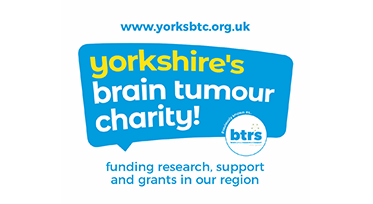Get to know Yorkshire's Brain Tumour Charity and How You can Support them This January
About Yorkshire’s Brain Tumour Charity
YBTC is Yorkshire's leading brain tumour charity dedicated to raising funds for life-changing research and patient support. They are entirely reliant on donations and receive no statutory funding.

What do Yorkshire’s Brain Tumour Charity Do?
Brain tumours don't discriminate, so neither do we. YBTC exists to support all patients with this disease (adults and children, low and high grade, at any stage of the patient journey), as well as their carers and loved ones, all across Yorkshire. Our support ranges from support groups, counseling and wellbeing walks to emergency grants and benefits advice clinics. Over 1000 people are diagnosed with this tumour across Yorkshire and the Humber annually. Of all cancers, brain tumours are the biggest killer of people under 40 and lack of funding and research in this field means survival rates have barely improved in 40 years. The average survival rate of glioblastoma, one of the most aggressive forms of brain tumour, is a dire 15 months following diagnosis. YBTC is here to change these statistics.
How Was Yorkshire’s Brain Tumor Charity Funded?
The charity was originally founded as Andrea’s Gift, named after Andrea Key, who was diagnosed with an aggressive brain tumour in October 2001. In May 2002, Andrea died, leaving behind a charity that provided much-needed support for patients and families and invested in research in the hopes of finding a cure. Since then, we have developed a valuable patient support network and made significant investments in research at hospitals across Leeds, Hull and Sheffield. We changed our name to Brain Tumour Research & Support in 2011, and in 2020 rebranded at Yorkshire's Brain Tumour Charity. The charity has also taken over the day-to-day running of other funds and charities including Ellie's Fund and Will's Way.
FAQs on Brain Tumour and YBTC
What are the Symptoms of Brain Tumour?
People with brain tumors will experience a range of symptoms which include headaches, changes in personality, seizures, difficulty thinking and speaking, tingling or stiffness on one side of the body, loss of balance and even changes in vision. If you are experiencing any of these symptoms, then seek medical help immediately. Yorkshire's Brain Tumour Charity will also be here to support you every step of the way.
When is Brain Tumour Awareness Month?
YBTC tirelessly works to raise awareness every single day, however March is known to be Brain Tumour Awareness Month, where relevant charities will have an increase in fundraising events, campaigns and more so those in need can be supported.
How Do I Contact Yorkshire’s Brain Tumour Charity?
YBTC’s address is 31 Otley Road, Headingley, Leeds, LS6 3AA. If you are looking to ring the YBTC Office, you can do so on 0113 340 0111, or alternatively email them on info@yorksbtc.org.uk. Their support lines are open 7 days from 9am to 10pm, and you can call the number on 0113 511 8111
How Common are Brain Tumours?
While more rare than other types of cancer, over 9,000 cases of primary brain tumours are diagnosed in the UK annually, with around 1,000 yearly cases in Yorkshire & the Humber alone. This translates to around 15 people being told they have a brain tumour in Yorkshire each week.
What Age are People Affected by Brain Tumours?
Around 10% of people diagnosed with brain tumours are under 18 and, of all cancers, brain tumours are the biggest killer of people under 40.
What are Brain Tumour Survival Rates Like?
Lack of funding and research in this field means survival rates have not improved in 40 years. Only one third of patients survive for 5 years following diagnosis of a malignant brain tumour.
Why are Brain Tumours so Difficult to Treat?
Brain tumours are currently treated using a combination of surgery, radiation therapy and chemotherapy, but the tumours frequently grow back shortly after these therapies. Brain tumours are notoriously hard to treat, as they are situated in the control centre for thought, memory, mood, sensation & mobility. Treatment is often not possible without harming these key processes. There are over 120 different types of brain tumour, which makes treatment very complicated. Currently, brain tumours cannot be prevented because their cause is still unknown.





